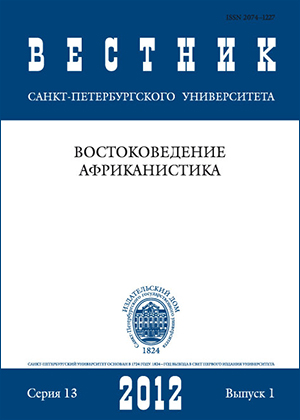The T’ang criminal law about prosecution of attempts on the person
Abstract
The article analyzes legal norms of the famous T’ang dynasty criminal Code “T’ang lu shu yi”, dedicated to consider attempts on the person made by specifi c methods. This specifi c character was connected with achievements in the fi eld of chemistry, medicine, biochemistry and magic. The traditional Chinese law was extremely anxious about correspondence between gravity of the off ence and severity of the punishment. Th is concern has broad cultural and even cosmological background. Therefore observance of justice was one of the main requirements at delivering a sentence. The justice could be kept, in particular, only when the balance of capabilities of the criminal to commit a crime and of a victim to prevent this crime was strictly taken into account. Even at common aff ray the simple rod taken by one of fi ghters upset such a balance, therefore his punishment was more severe. The observance of the same principle can be traced in the situations, when violations of balance of capabilities were carried out in strange, hermetic, little-known ways. Another important point is that all these ways of infl uence were incorporated by criminal law into a conventional system of values. Th is fact can be discovered in the modifi cations of punishment in the situations when high-tech ways of impact were used against those who were connected with the criminal by any hierarchic structures: kindred, social, offi cial. All complicated norms, designed for customary crimes against, for example, relatives, in cases of magic, wizardry or poisoning remained in force. The criminal norms were a good example of adaptation of technological innovations by the traditional Chinese culture.
Keywords:
traditional societies, criminal law and culture, personal physical and psychological security, ideas of justice, innovation and tradition
Downloads
References
Downloads
Published
How to Cite
Issue
Section
License
Articles of "Vestnik of Saint Petersburg University. Asian and African Studies" are open access distributed under the terms of the License Agreement with Saint Petersburg State University, which permits to the authors unrestricted distribution and self-archiving free of charge.





